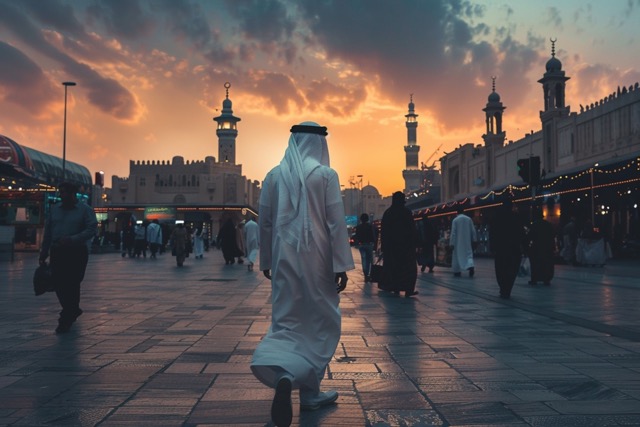Saudi Farmer Cultivates Elusive Cardamom, Enhancing Saudi Coffee Flavor
In a remarkable feat, a farmer in Baha has cracked the code to successfully cultivate the elusive cardamom, the key ingredient that imparts the distinctive flavor and aroma to Saudi coffee, also known as gahwa.
Driven by his unwavering love and passion for cardamom-infused coffee, Abdullah Al-Zahrani, a visionary farmer from Bani Hassan in northwest Baha, embarked on a series of agricultural experiments that eventually led to the growth of over 350 cardamom plants.
Abdullah Al-Zahrani’s dedication to agriculture has motivated him to cultivate rare plants like cardamom and herbaceous varieties. (SPA)
In an exclusive interview with the Saudi Press Agency, Al-Zahrani shared, “I began cultivating cardamom about three years ago on agricultural terraces in the village using a small quantity of seeds.”
Despite having no prior experience in cultivating the plant, Al-Zahrani defied conventional wisdom that cardamom seedlings could only thrive in specific regions and climates. He proudly announced, “Today, I have over 350 cardamom seedlings and anticipate harvesting the first crop in the next few months. This journey has been incredibly rewarding, and I am committed to expanding it into a large-scale commercial production venture.”
Abdullah Al-Zahrani’s passion and love for agriculture has inspired him to cultivate rare plants and trees, including cardamom and herbaceous plants. (SPA)
Al-Zahrani attributed his success to his fervor for agriculture, which drove him to cultivate exotic plants and trees, such as cardamom and herbaceous species.
To cultivate the coveted spice, he leveraged the region’s rich environmental resources, including fertile soil, pristine water, and mild weather conditions. By planting healthy cardamom seeds 3 cm deep in the ground with a spacing of 20–30 cm between each sowing, Al-Zahrani optimized the growth process. He also acknowledged the invaluable agricultural guidance provided by the Ministry of Environment, Water, and Agriculture’s Baha branch.
FASTFACTS
• To cultivate cardamom, Abdullah Al-Zahrani capitalized on the region’s environmental conditions, like soil fertility, fresh water, and moderate weather.
• He planted healthy cardamom seeds 3 cm deep in the ground and maintained a spacing of 20–30 cm between each sowing.
With careful nurturing, cardamom typically takes around eight months to reach the harvesting stage, growing up to two meters in height. The mature fruit of a cardamom tree mirrors the quality and taste found in the market.
Abdullah Al-Zahrani’s passion and love for agriculture has inspired him to cultivate rare plants and trees, including cardamom and herbaceous plants. (SPA)
Looking ahead, the ambitious Baha farmer aims to expand the number of cardamom trees on his farm in the upcoming years, leveraging the region’s natural assets.
He emphasized, “Diversifying crops leads to diverse income sources. Agriculture serves as a captivating facet of rural life, drawing the attention of tourists and visitors with its charm and quality. It plays a vital role in rural tourism, enriching the region’s heritage and fostering a deep connection between humans and the land.”
According to the report by the Saudi Press Agency, residents of Baha rely on agriculture for economic sustenance and livelihood enhancement. With support from the ministry, the region embraces innovative agricultural practices and cultivates new and rare fruit tree varieties to promote environmental sustainability.

